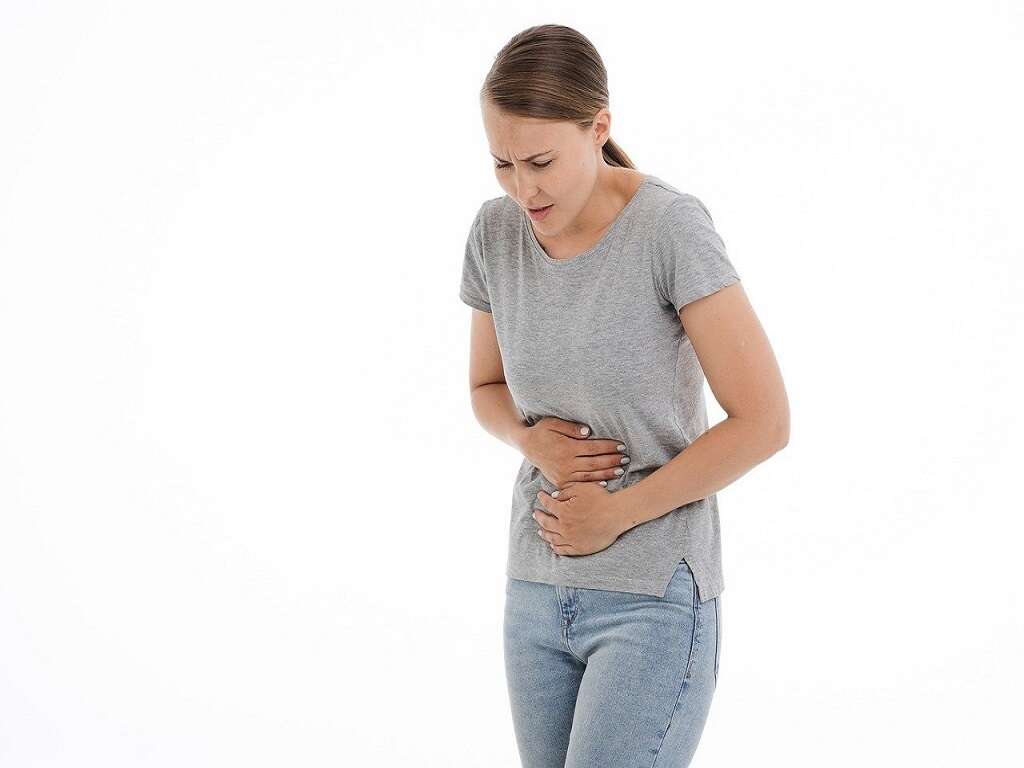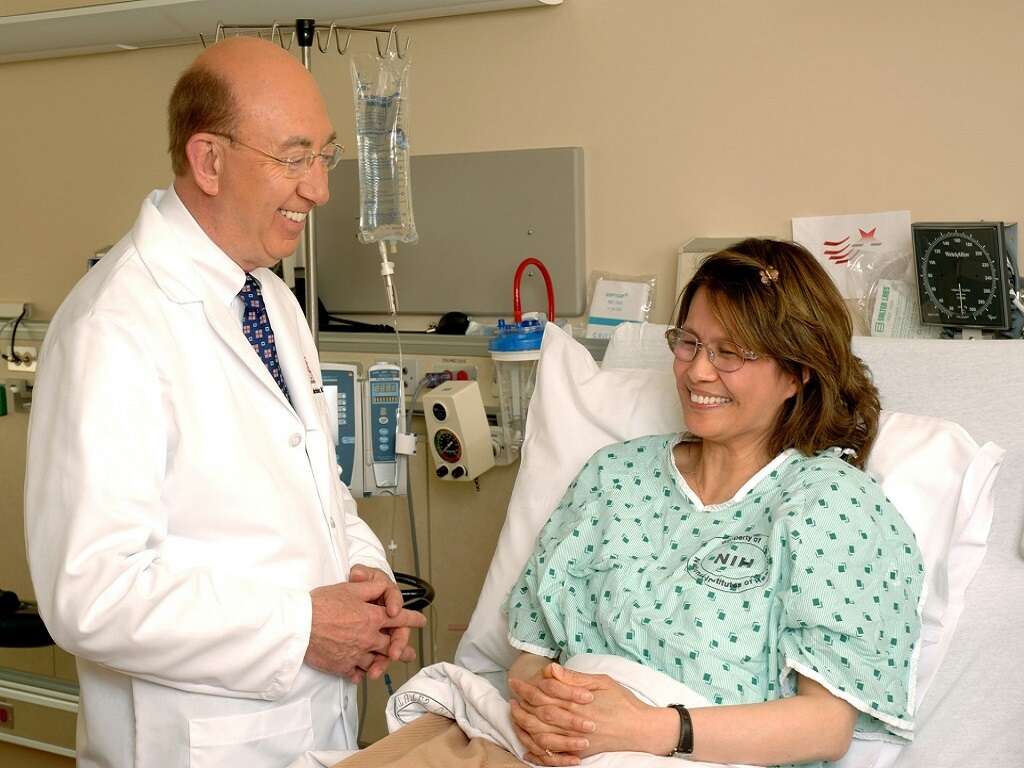10 Causes of Abdominal Pain
Abdominal pain occurs in the area between the lower edge of the ribcage and the pelvic area. This area contains various organs such as the stomach, liver, small and large intestines, pancreas, spleen, and gall bladder. These organs are contained by the abdominal cavity.
Abdominal pain may be caused by many different issues, including irritation, blockage, stretching, and swelling. It can also occur when the supply of blood to some tissues or an organ is cut off. Location of the pain, duration and the nature of the onset, are some of the characteristics to consider in determining the cause of abdominal pain.
Abdominal pain can be an important symptom related to very serious conditions that require immediate medical attention. For this reason, you should always seek medical attention for a proper diagnosis before using any drugs to relieve the pain.
Cause #1: Acid Reflux
Acid reflux, also known as gastroesophageal reflux disease or GERD can cause abdominal pain. Acid reflux occurs due to a defect in the stomach sphincter that causes it to open, allowing stomach acid to go into the esophagus. The stomach sphincter normally opens one way to allow food to get into the stomach.
Although acid reflux is mild in many people, it can cause a lot of pain and discomfort in others. The characteristics of abdominal pain caused by GERD include pain within the upper abdominal region, chest pain, hiccups, burning in the throat and nausea.
Cause #2: Peptic Ulcer
Peptic ulcers occur in the inner wall lining the stomach and the small intestines. It is known as a gastric ulcer when it occurs within the stomach and duodenal ulcer when it occurs in the intestines. Peptic ulcers normally result from an infection by bacteria called Helicobacter pylori or long-term use of non-steroidal anti-inflammatory medications like ibuprofen, aspirin, and naproxen. These erode the mucus membrane lining the gut walls such that gastric acid gets to the unprotected walls causing a burning sensation. Zollinger-Ellison syndrome is another condition that can lead to peptic ulcers by causing overproduction of gastric acid1https://www.healthline.com/health/stomach-ulcer.
The pain is usually in the upper middle quadrant of the abdomen and it can be mild to severe in intensity. It starts as a burning sensation and as time goes by it can become very intense. If you are suffering from this symptom, you should seek medical attention to prevent further complications such as perforations.
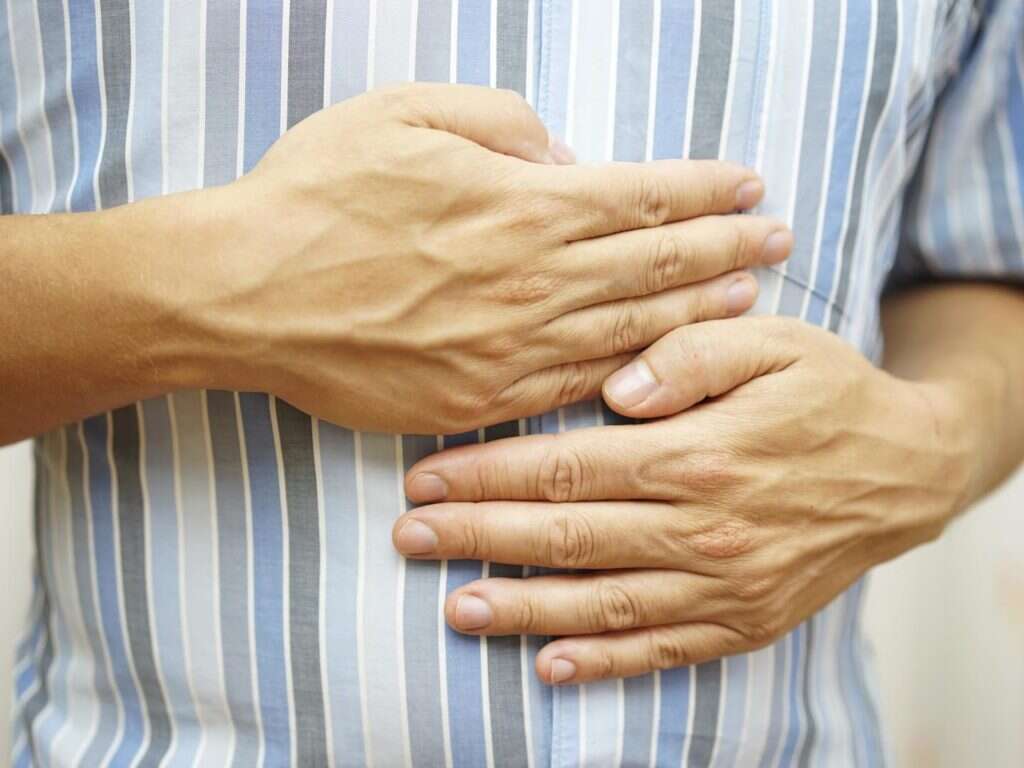
Cause #3: Kidney Stones
Kidney stones are formed when there is an excess of minerals and other compounds in the kidneys such that they cannot be dissolved in urine for onward excretion. Abdominal pain caused by kidney stones occurs when the stone moves either within the kidneys or through the ureter. The resultant pain occurs in the side below the ribcage and down to the groin.
Abdominal pain caused by kidney stones normally presents in waves, fluctuating in intensity between extreme and less serious pain. Additionally, you may experience pain when urinating. The urine may also be dark in color and foul smelling. Other accompanying symptoms include nausea and vomiting.
Cause #4: Inflamed Appendix
The appendix is located in the lower right part of the abdomen. It has no known function in the adult body. However, if the appendix becomes inflamed, a condition that is also called appendicitis; it causes excruciating abdominal pain. Treatment is normally through the surgical removal of the appendix, known as appendectomy.
Abdominal pain associated with appendicitis normally begins near the navel. As the inflammation continues, the pain descends to the lower right region of the abdomen, and continues to grow in intensity. The pain may be accompanied by other symptoms like loss of appetite, diarrhea or constipation, nausea, vomiting and low fever.

Cause #5: Hernia
A hernia is a condition in which a portion of tissue or organ pushes through a weak area of connective tissue, also called fascia, or surrounding muscle. The protruding part of tissue or organ is pinched, which causes abdominal pain. Hernias may also occur due to an incision from previous surgery. Hernias may develop in various parts of the body such as the diaphragm and abdominal wall2https://www.webmd.com/digestive-disorders/understanding-hernia-basics.
The most common site for a hernia to appear is in the inguinal canal (groin). The pain is usually mild in intensity and it can worsen with activities that increase the pressure within the abdominal cavity, such as coughing. If you are experiencing these symptoms, you should seek medical attention to prevent further complications.
Cause #6: Inflammatory Bowel Disease
Inflammatory bowel disease or IBD, is a term used to describe several disorders involving the inflammation of the gastrointestinal tract. It is caused by a dysregulated immune response, causing inflammation to occur. The main IBD disorders are Crohn’s disease, which can affect any part of the gut, and ulcerative colitis which only affects the large intestines, also called colon.
Symptoms of IBD normally come and go depending on the degree of inflammation. When it flares, IBD presents with cramping pain, fever, loss of appetite, urgent need to defecate, diarrhea which may be bloody and anemia.
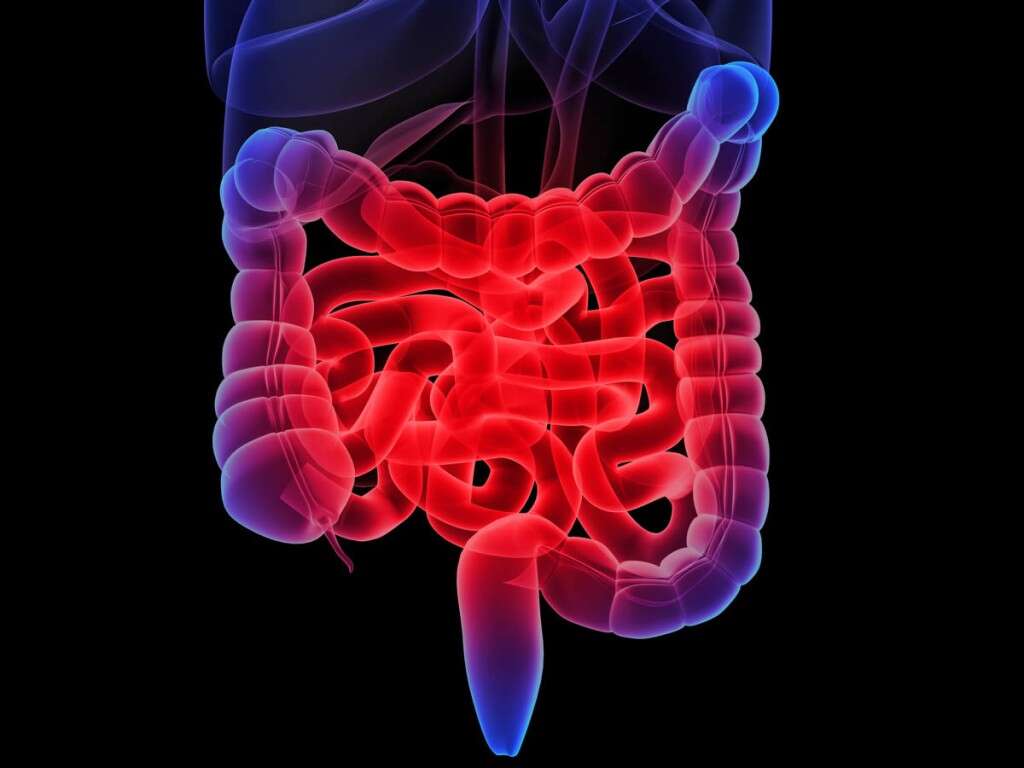
Cause #7: Lactose Intolerance
Lactose is the main protein found in dairy products like cheese and milk. Many people lack the enzyme that process lactose in the gut. This condition is called Lactose Intolerance in it is quite common.
One of the symptoms associated with this disease is abdominal pain in the form of abdominal cramps after eating a lactose-containing food. Flatulence and bloating are common symptoms as well.
Cause #8: Constipation
Constipation is a common cause of abdominal pain characterized by difficulty or inability to have a bowel movement. The condition happens to almost everybody at some point. However, while the frequency of bowel movement is different for individuals, you are said to have constipation if you have less than three bowel movements in a week. Constipation is usually caused by poor diet that includes refined foods that don’t include fiber and enough water. It can also be caused by inactivity, stress, overuse of laxatives and use of drugs narcotics, antidepressants, and conditions like irritable bowel syndrome.
Symptoms of constipation include going for more than three days without a bowel movement, strain when having a bowel movement, dry or small stools, bloating.
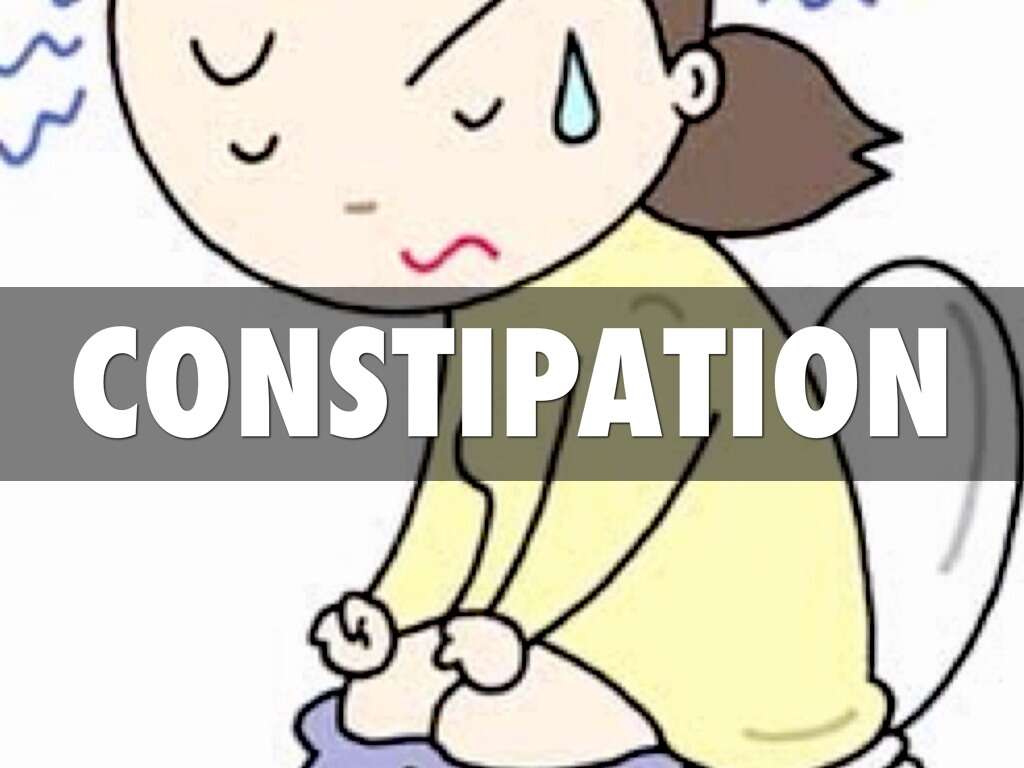
Cause #9: Irritable Bowel Disease (IBS)
Irritable Bowel Syndrome (IBS) is a gastrointestinal disorder with a poorly understood cause but still, it is quite common. With a 10 to 20% estimated prevalence many people are affected by this condition.
The diagnosis is made when a patient suffers from persistent altered bowel habit, abdominal pain and bloating after ruling out any organic disorder. The pain is usually mild and located in the lower half of the abdomen. Defecation usually improves pain in patients with this condition.
Cause #10: Diverticulitis
Diverticulitis is a condition in which inflammation occurs in the small pouches called diverticula that form in the walls of the digestive tract, especially in the colon. The pouches protrude in weak spots of the gut walls providing space where some waste matter may get trapped. If inflammation occurs or bacteria get into the diverticula and cause an infection, the result is diverticulitis. Risk factors associated with diverticulitis include low fiber diet, obesity, physical inactivity, deficiency of vitamin D, smoking and use of some medications like non-steroidal anti-inflammatory drugs such as aspirin, steroids and opiates.
Symptoms of diverticulitis include abdominal pain (usually in the left lower quadrant), bloating, diarrhea, nausea, vomiting and constipation.



